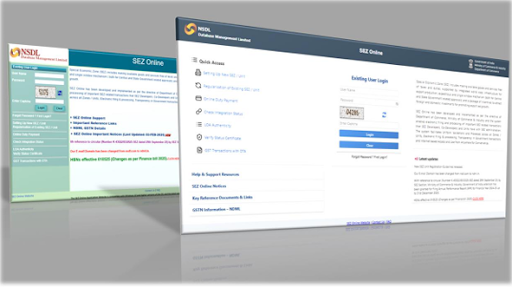Understanding the Clearing Bye-Laws of India International Bullion Exchange (IIBX): A Professional Guide
- GIFT CFO
- Jul 29
- 4 min read
Updated: Aug 7
INTRODUCTION
India has long been a hub for gold and precious metals trading. With the establishment of the India International Bullion Exchange IFSC Limited (IIBX) at GIFT City, India is advancing its position in the global bullion market by providing a structured, transparent, and internationally compliant trading platform. Central to the smooth functioning of this exchange are the Clearing Bye-Laws, which govern the clearing, settlement, risk management, and membership processes essential to the market's integrity.
In this blog, we break down the key elements of the IIBX Clearing Bye-Laws into clear language that business professionals, new members, and stakeholders can easily understand.

What Are the Clearing Bye-Laws?
The Clearing Bye-Laws are a comprehensive set of rules that define how:
· Deals in bullion (gold, silver, and other precious metals) are cleared and settled
· Membership is granted, maintained, or terminated
· Risk management and margin requirements are administered
· Defaults and disputes are managed
These Bye-Laws ensure the safety, efficiency, and fairness of the bullion exchange’s clearing and settlement operations.
Governance Structure: Who’s in Charge?
The Board of Directors of the Bullion Clearing Corporation, a division of IIBX, is responsible for framing, amending, and enforcing these Bye-Laws. This Board can establish various committees to oversee specific functions such as membership approvals, risk management, and disciplinary actions.
The Board ensures alignment with the regulations and guidelines of the International Financial Services Centres Authority (IFSCA), under whose supervision the IIBX operates.
Membership: Bullion Clearing Members
Who Can Become a Bullion Clearing Member (BCM)?
Only entities that meet strict financial, legal, and regulatory criteria can become BCMs. These typically include companies complying with Indian corporate laws or eligible foreign entities recognized by IFSCA.
Obligations of BCMs
BCMs play a crucial role by clearing and settling bullion deals on behalf of themselves or their clients. They are required to:
· Maintain adequate financial resources, including paying fees and security deposits
· Adhere to the exchange's rules and margin requirements
· Cooperate with audits and submit required reports
· Ensure timely settlement of contracts and delivery obligations
Membership Terms
Membership is typically non-transferable, except in special cases such as mergers or acquisitions approved by the exchange. Failure to comply with obligations may result in suspension or expulsion.
Clearing and Settlement Process
What Deals Are Cleared?
Only deals admitted by the Bullion Clearing Corporation and compliant with the Bye-Laws are cleared. The Clearing Corporation acts as the legal counterparty to all trades, effectively novating the contract to itself for risk management purposes.
Settlement Finality
Once a settlement is finalized, it is irrevocable and binding on members. Collaterals and margins posted by members have priority in the settlement process.
Delivery of Bullion
Settlement typically involves transferring Bullion Depository Receipts, representing actual precious metals stored securely in approved vaults. The rules detail standards of "good delivery" to ensure quality and authenticity.
Risk Management and Margin Requirements
To safeguard the market from financial risks, BCMs must maintain adequate margins — collateral posted to cover potential exposure due to market fluctuations.
· Margins can be in cash, securities, or other approved forms.
· The Clearing Corporation continuously monitors margin levels and may require top-ups when necessary.
· Evasion of margin requirements is strictly prohibited.
This system aligns with international principles for financial market infrastructures to ensure systemic safety.
Settlement Guarantee Fund (SGF)
The IIBX maintains a Settlement Guarantee Fund to protect the market in case any member fails to deliver on its obligations. Key points about SGF include:
· All clearing members contribute to this fund as a financial safeguard.
· The SGF can be used to meet settlement obligations of defaulting members.
· It is managed prudently with rules about contributions, utilisation, and replenishment.
· Periodic stress tests assess the adequacy of the fund's corpus.
Handling Defaults and Disputes
What Constitutes a Default?
A member may be declared a defaulter if it:
· Fails to meet clearing and settlement obligations
· Is insolvent or bankrupt
· Does not pay dues within prescribed timelines
· Fails to comply with arbitration awards, or
· Violates other key Bye-Laws
Consequences of Default
· Immediate notification to all members and relevant exchanges
· The defaulter’s assets, deposits, and margins are seized to cover liabilities
· Open positions may be closed out by the Clearing Corporation
· Membership may be suspended or terminated
· Legal and recovery proceedings may be initiated
Dispute Resolution
All disputes related to deals and clearing are resolved through arbitration or other formal dispute resolution mechanisms as prescribed by IFSCA, ensuring fairness and transparency.
Confidentiality and Compliance
The IIBX strictly maintains confidentiality of member and client information, except when disclosure is legally mandated.
Members must comply with all applicable laws and IFSCA directives, which take precedence if there is any conflict with the Bye-Laws.
Additionally, all actions taken in good faith by the Clearing Corporation or its officers under the Bye-Laws are legally protected to foster operational independence.
Communication and Updates
IIBX communicates changes and directions through official Communiqués which are binding on all members. The Board has the authority to clarify or amend Bye-Laws to respond to evolving market needs and regulatory requirements.
Why These Rules Matter: The Bigger Picture
With India’s growing prominence in the global bullion market, a robust, transparent, and legally sound framework for clearing and settlement is crucial.
The IIBX Clearing Bye-Laws:
· Ensure market integrity and reduce systemic risk
· Safeguard the interests of participants and consumers alike
· Promote confidence among domestic and international investors
· Help align India’s bullion trading with global best practices
For businesses, financial professionals, and regulators, understanding these Bye-Laws is essential to participate confidently and responsibly in India’s bullion exchange.
Conclusion
The India International Bullion Exchange IFSC Limited is setting new benchmarks for bullion trading in India. Its Clearing Bye-Laws provide the critical rules and protections that make this possible, safeguarding each transaction and member along the way.
Whether you are considering becoming a member or simply want to understand how a modern bullion market operates, knowing the Clearing Bye-Laws is a foundational step. By fostering trust, transparency, and enforcement, these rules help build a secure marketplace poised for growth and innovation.
If you need further details on specific provisions such as membership criteria, settlement processes, margin rules, or default management, professional guidance should be sought to ensure full compliance and understanding


























































































Comments